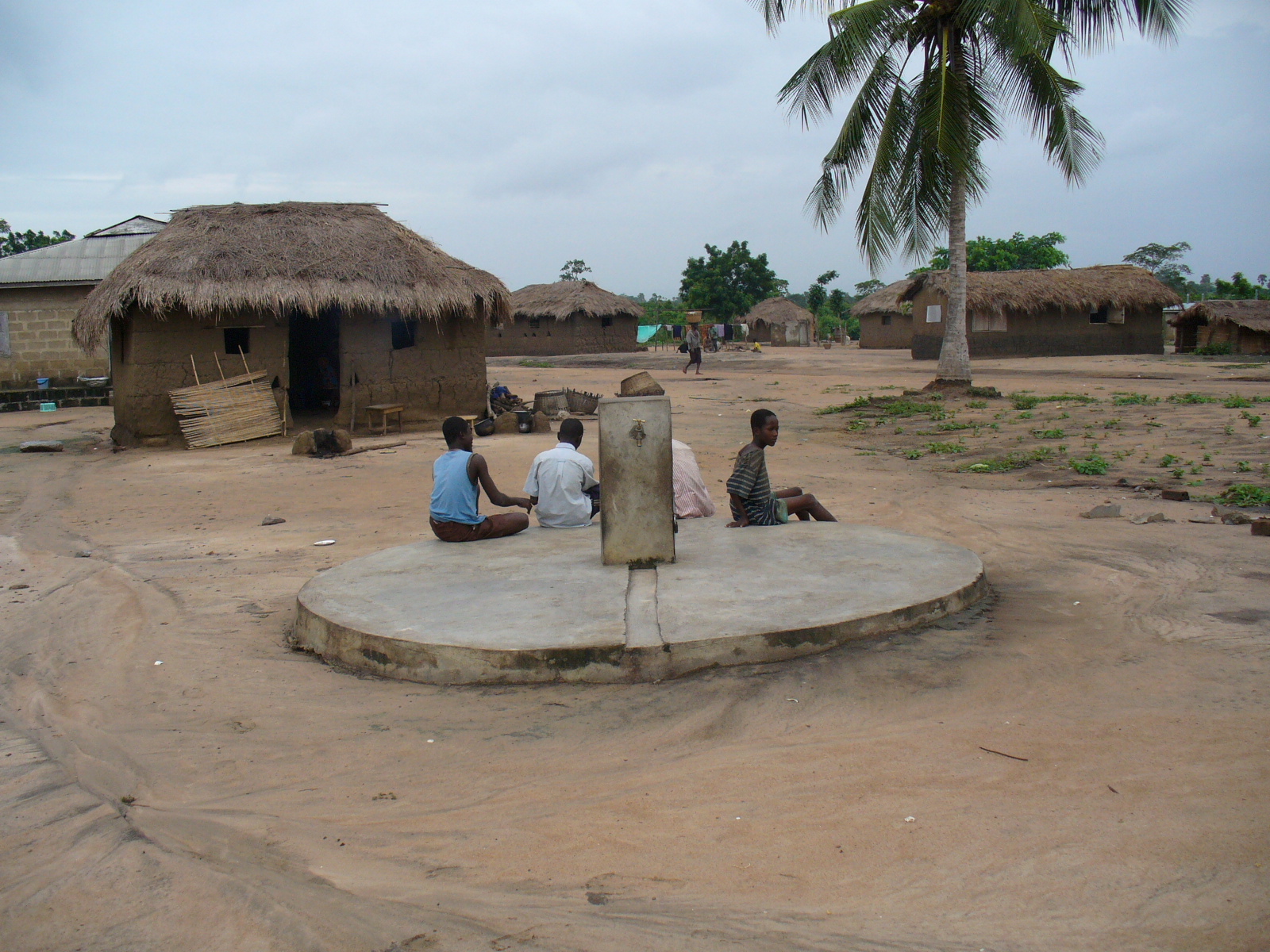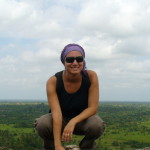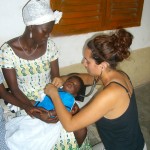On my first full day in the village I cleaned my face with wet wipes because I wasn’t sure how to get water. I had begun to worry that I would not have enough of these to last me so I had started breaking them in half and stuffing the remainder back into the packet, nervous to part with the opportunity to be clean. I joined the clinic manager Emperor outside, and he said he had a baby for us to look at in the village. Emperor had lived in Ghana his whole life, most of it in a small village just down the road, and he seemed to know everyone. He had been working at the clinic since its inception a few years ago and he did many things; drove the truck, saw patients in clinic, was the main contact for volunteers and was even dabbling with homeopathy he had been learning from volunteers from the UK. Emperor was assigned to be my main point person in Ghana, which I was usually grateful for.
I grabbed my stethoscope and we walked across the road. The clinic sits just off the main road and adjacent to the village of Seva. The dwellings in Seva are mostly composed of mud bricks, stacked one atop the other then covered again with smearing mud so they coalesce together with each brick vaguely keeping its original form. The roofs are thatch, dry and crusty, perching atop each home. As in any community the dwellings vary, some are small and unkempt, others larger with corrugated tin roofs that do a much better job at keeping out the rain. As we arrived, chickens squawked about freely and goats lazily roamed around nibbling at the grass on the periphery of the village. The dry burning scent of fire universally wafted out of each home as breakfast was being prepared. There was a sea of nearly twenty children who came to observe the mother, to investigate me. Their rich dark eyes stared up at us. The mother extended her baby to me. The baby was warm and damp wrapped beneath layers of yellow and orange cloth. Beads of sweat danced across its nose- I never knew that babies could sweat so young. Its heart was thumping loudly, and I didn’t need my stethoscope to perceive the difficulty it was having trying to breathe. The mother leaned her face in close to her baby and then up towards me, I felt her warm breathing on my skin as she asked, in Ewe, what I thought. The scent of the mother overwhelmed me, her intimacy in my space, with the scent of her un-bathed skin overpowering. I thought the baby needed to go to the nearest hospital, and Emperor agreed, relaying my recommendation to the mother in what seemed like many more words than it had taken me to recommend an urgent hospital visit. I wondered, as I often did, what was being spoken in Ewe on my behalf.
We returned to the clinic and sat down to breakfast. I felt useful to have been able to make a recommendation, perhaps the overwhelming feeling I had been carrying since arriving in Ghana, that I had made a huge mistake, was just nerves after all. I picked up the porridge, yet just like the night before, the anxiety in my stomach made it impossible for food to pass my lips. An avid consumer of many cuisines, I had never experienced anything like this. I was sitting there contemplating how to force myself to eat when I heard the cry. I would come to recognize this piercing reverberation as the definition of wailing, as the auditory experience of grief.
We met the mother at the clinic as she brought her baby in, her shoulders low, head hung, feet dragging. Emperor asked me to evaluate the baby. I placed my stethoscope on its chest once again but this time was met only with silence. The baby was still, it’s lips slightly parted. Eyes peacefully closed. I had never lost anyone close to me, never witnessed death, and certainly never diagnosed a four week olds final day of life. In one moment the body was warm and buzzing beneath my hand, fighting for life and firmly rooted in this world. The next there was only stillness, the hope of a childhood and school, perhaps marriage and a job, whisked away by what I could only imagine was a disease that surely could have been treated. I stood next to the mother and baby, and two women who accompanied her, and listened to Emperor converse with them in his low voice. I had nothing to say, I was stunned into silence.
After the family left we returned to the breakfast table under the thatch roof, the flies buzzing around our covered food and the dog scratching along the cement flooring. “Some of the other volunteers cried when they saw death,” Emperor explained to me. I nodded. He continued, “Mila cried so much when the premature baby died.” He laughed as he remembered this. “It was too young to live, but still she cried,” he explained. I sat there for a moment then excused myself to my room just adjacent to where we sat. I barely made it to my room before my own grief coursed through my body. It was something that rushed out from deep inside, that I never knew existed, and poured out of my eyes. It shook my entire being. I steadied myself on the dresser and hunched over towards the floor. Warm tears burned my already dusty face. I grieved for the child that would never know a life, and for the mother who was robbed. I cried over my loneliness, my fear that was every moment threatening to overtake me, and over undiscriminating death and discriminating poverty. I was struggling to pull myself together when Emperor came and rapped softly on my screen door. “Olivia, you need to come eat your breakfast.” He was not gentle. He was not harsh. The fact was I needed to eat my breakfast because the day needed to continue. There were more patients to come. And I was told in that moment what I would be told many times while I lived in Ghana, “Your tears do not make you less sad, so you shouldn’t cry so much. No more favi, Olivia.”




